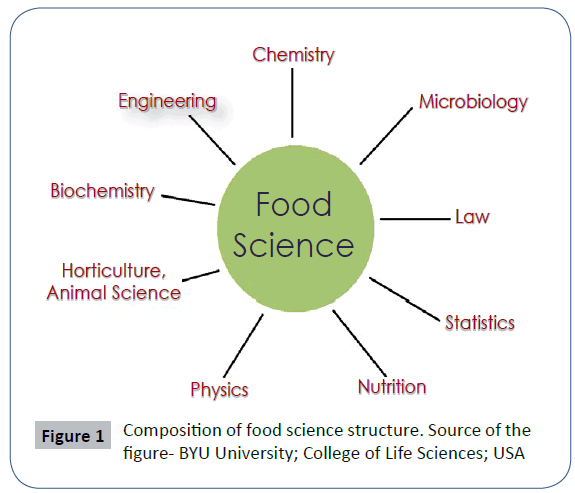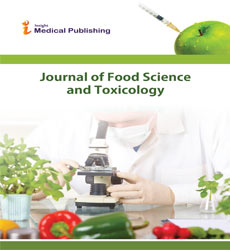Is Food Science Sin-Quo-Non?
Badar Alam Iqbal*
Adjunct Professor, School of Economics and Finance; Monarch University; Zug, Switzerland
- *Corresponding Author:
- Badar Alam Iqbal
Adjunct Professor, School of Economics and Finance
Monarch University; Zug (Switzerland).
E-mail: badar.iqbal@fulbrightmail.org
Received date: July 02, 2017; Accepted date: July 07, 2017; Published date: July 12, 2017
Citation: Iqbal BA (2017) Is Food Science Sin-Quo-Non? J Food Sci Toxicol. Vol. 1 No. 1:1
Introduction
The existence and the survival of human beings depend upon the availability and supply of food. Uninterrupted food supply as well as sustainable food supply is only possible through growth and development trajectory of foods. For achieving this in the short and long run the concept and application of food science plays a vital role. Thus, food science is the sin-quo-non.
Conceptual Framework
A lot of work conducted on food science converges to the study of physical, biological, and chemical composition of food as well as includes the application of food science. The applied aspects deal with concepts such as food processing and food technology. The latter and the former are associated with selection, preservation, processing, packaging, distribution and use of safe food [1].
According to The Institute of Food Technologists (IFT) [2] food science is "the discipline in which the engineering, biological and physical sciences are used to study the nature of foods, the causes of deterioration, the principles underlying food processing, and the improvement of foods for the consuming public" (IFT, n.d.). In simpler terms food science is the application of basic sciences and engineering to study the physical, chemical, and biochemical nature of foods and the principles of food processing”.
Scope of Food Science
Food science is the blend of myriad disciplines such as biology, chemical engineering, and biochemistry. A separate study on the economics of food is also in vogue. The specialised branch aims at developing better and clear understanding of food processes. In depth, study deals with improving food products for human beings. The terms such as industrial food and organic food are now popular. Several of the researchers’ deals with the adequate, interrupted supply of food to the people and these food scientists have taken scientists endeavours to explore the physical, microbiological, and chemical ingredients of food. The development of the safe and nutritious foods as well as improving efficiency in the distribution of food is due to food scientists.
Food Technology
In the era of science and technology, food science is dependent on the same and scientists have attempted to integrate food processing with technology. Food science is responsible for investigating the food properties and contents and the possible ways of improving its quality and quantity. Food consumption patterns are studied and distribution patterns are improved [3]. All this adds to the innovative food industry all over the world. The primary problem aimed to solve with the food technology is hunger as total output of food is sufficient for the world population but unequal distribution exists due to one or the other reason.
IFT Food Science Activity Guide
The present world is the world of knowledge reservoirs and knowledge sharing. For such an objective self-help toolkits are frequently available. One of suck toolkit is the Institute of Food Technologists (IFT) Food Science Activity Guide. The ultimate aim of the guide is to promote awareness and knowledge about food related aspects to both producers and consumers of food industry. The guide includes contents such as field-tested activities, classrooms outreach activities, activities for involvement of community organisation, awareness of food consumers etc. Each activity consists of background, an administrator's guide, and a consumer hand-out. These types of kits are bringing revolution in the food industry as more and more people are getting aware about food science.
Food Science Experiments
Food science is based not on intuition but on experiments and evidences. Food science experiments present evidences for their further study in the classrooms. In a controlled environment, these experiments are conducted. It has been argued that food science do create a path for effective and efficient food supply in the world. The evolution of society, consumption patterns, and sustainable eco-systems has also generated a case for the evolution of food studies and incorporation with the help of food experiments. Food scientists are strongly committed towards advancing the science of food, ensuring a safe and abundant food supply, and contributing to healthier people everywhere [4]. Food scientists and technologists are versatile, interdisciplinary, and collaborative practitioners in a profession at the crossroads of scientific and technological developments. Due to the changing nature of food experiments, food science is seen as a multidisciplinary approach.
Areas of Food Science
There is growing body of literature focusing on the dimensions of food science and it is increasingly becoming complex due to its multidisciplinary and interdisciplinary nature. However, the following is the list of major areas of food science:
• Frozen foods
• Canned foods
• Microwave meals
• Milk which keeps
• Snacks
• Nutritious new foods
• More easily prepared traditional foods
• Above all, variety in our diets.
It is to be noted that food science is not just restricted to the above-mentioned areas. The tacit knowledge of food science is a pragmatic approach towards developing new food products and processes, new ways of preservation of food for distribution in farther lands, storage of food for a relatively large period [5], study of lag and lead in food distribution, and eventually the assurance of safe and health food. Safe and nutritious food is the proxy indicator for food quality. Food scientists are involved in all aspects of this process, from the point of animal and crop production to the time of food consumption (Figure 1) [6].
In the end, it would be justified to state that food science is an emerging field of paramount importance to human civilisation. It is exciting for producers, consumers, technologists and scientists, alike. The outcome of food science is more stable, nutritious, convenient, reliable and safe food products.
References
- Himanshu (2017) Face the decline. The Indian Express, New Delhi, p: 11.
- Bhalla SS (2017) Data vs. gossip: Who should win? The Indian Express, New Delhi, p: 9.
- Gulati A, Hussain S (2017) A sketchy roadmap. The Indian Express, New Delhi, p: 9.
- Gulati A, Roy (2017) What Gujarat did yesterday? The Indian Express, New Delhi, p: 9.
Open Access Journals
- Aquaculture & Veterinary Science
- Chemistry & Chemical Sciences
- Clinical Sciences
- Engineering
- General Science
- Genetics & Molecular Biology
- Health Care & Nursing
- Immunology & Microbiology
- Materials Science
- Mathematics & Physics
- Medical Sciences
- Neurology & Psychiatry
- Oncology & Cancer Science
- Pharmaceutical Sciences

